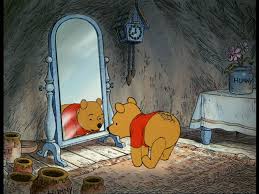Exploring the Concept of “Venging”: A Deeper Dive into Language and Literature
The term “venging” might not be a common word in everyday language, but it carries a rich significance rooted in historical and literary contexts. Derived from the word “venge,” which has its origins in the Latin root “vindicāre,” meaning “to protect, avenge, or punish,” venging is associated with the act of seeking retribution or justice for a wrong. This article explores the use of “venging” in literature, its meanings, and its implications.
The Roots and Meaning of “Venging”
At its core, “venging” is the act of seeking vengeance or retribution. It is often linked to a sense of justice or moral duty, where the individual feels compelled to right a wrong, whether for themselves or on behalf of others.
The word “venge” itself is less frequently used in modern English, with “avenge” or “revenge” being more common, but it still holds a powerful place in language, especially in more formal or literary contexts.
For instance, the word “avenge” is a verb that means “to take vengeance for” or “to take vengeance on behalf of.” This implies an action motivated by justice, often in response to a wrongdoing. In contrast, “revenge” typically refers to the act of retaliating for a personal insult or harm, and is often driven by emotion rather than a sense of duty.
Examples of “Venging” in Literature
Literature has long been a medium through which the themes of vengeance and justice are explored. In many classic and contemporary works, characters engage in acts of venge, motivated by a deep sense of wrong that demands rectification. These acts are often portrayed with a mix of moral complexity, where the line between justice and revenge becomes blurred.
- “Louisiana’s Way Home” by Kate DiCamillo: Although not directly using the term “venging,” the book presents scenarios where characters must grapple with the desire to right wrongs, whether through direct action or internal reflection. The story’s use of a vending machine, symbolically providing choices, parallels the choices characters make between forgiveness and vengeance.
- Shakespeare’s Plays: In many of Shakespeare’s works, such as “Hamlet” and “Othello,” the theme of vengeance is central. Characters are often driven by a need to avenge perceived wrongs, leading to tragic outcomes. The complexity of these characters’ motivations highlights the dual nature of venge, as both a protective act and a destructive force.
- Modern Fiction: In contemporary literature, the idea of venge is often explored in more subtle ways. Characters may not seek overt vengeance, but their actions are shaped by past wrongs and the desire to rectify them. This can be seen in novels that deal with themes of justice, redemption, and moral ambiguity.
The Psychological and Ethical Dimensions of “Venging”
The concept of venge is not only a literary theme but also a psychological and ethical one. It raises questions about the nature of justice, the ethics of retribution, and the psychological impact of harboring a desire for vengeance. In many stories, characters who seek vengeance often find themselves consumed by it, leading to their downfall or a transformation of their character.
In ethical terms, venge challenges the idea of “an eye for an eye.” It prompts readers to consider whether retribution is a form of justice or merely a perpetuation of violence. This duality is what makes the theme of venge so compelling in literature and so relevant in discussions of morality.
Conclusion
The word “venging,” though not commonly used, encapsulates a powerful concept that has resonated through literature and human experience for centuries. It speaks to the deep-seated desire for justice, the moral dilemmas of retribution, and the complexities of human emotions. Whether explored through classic literature or modern narratives, the act of venge remains a poignant reminder of the fine line between justice and revenge.




